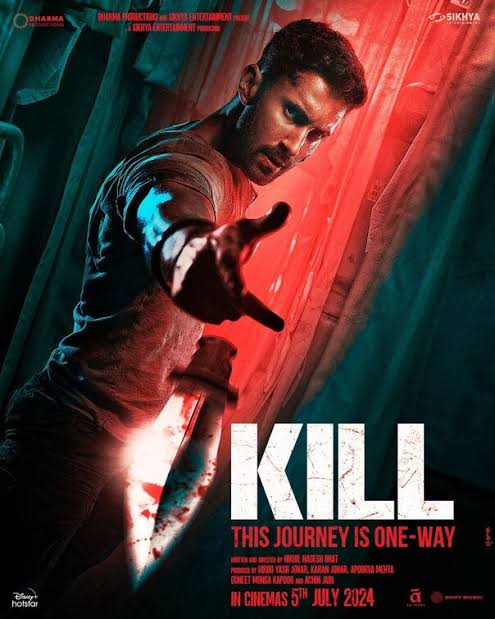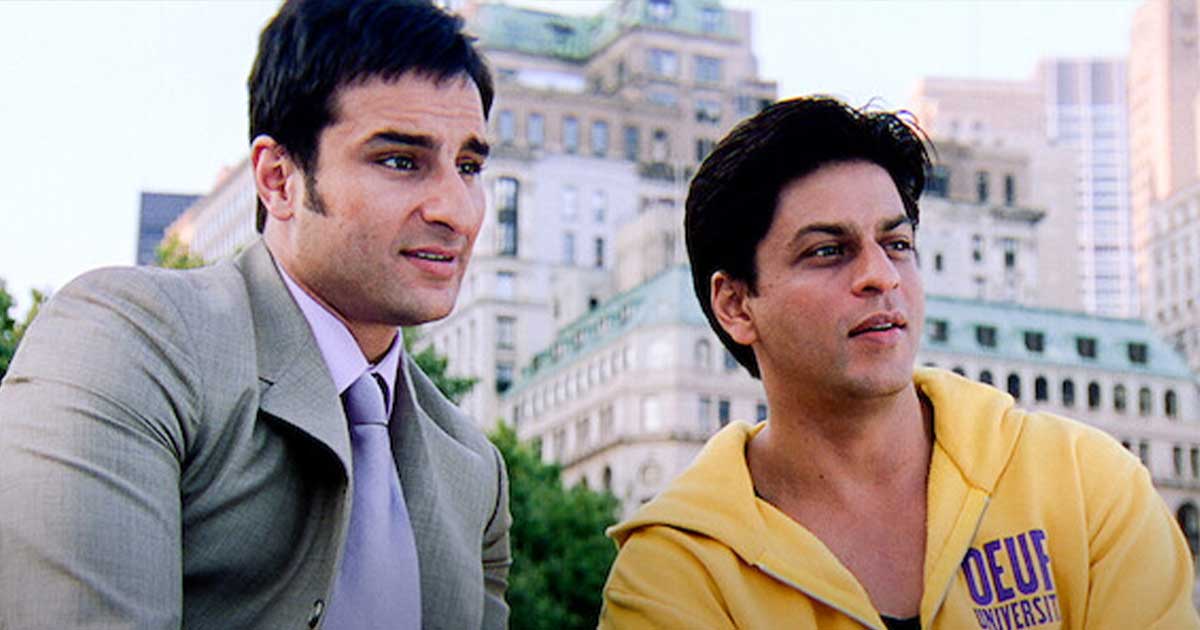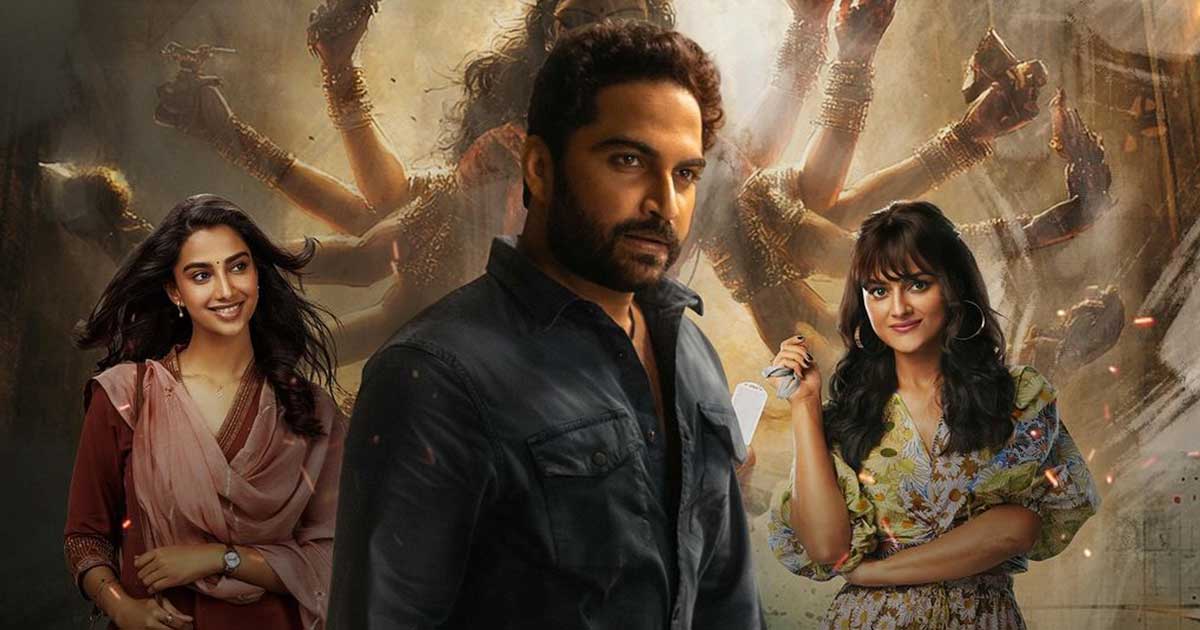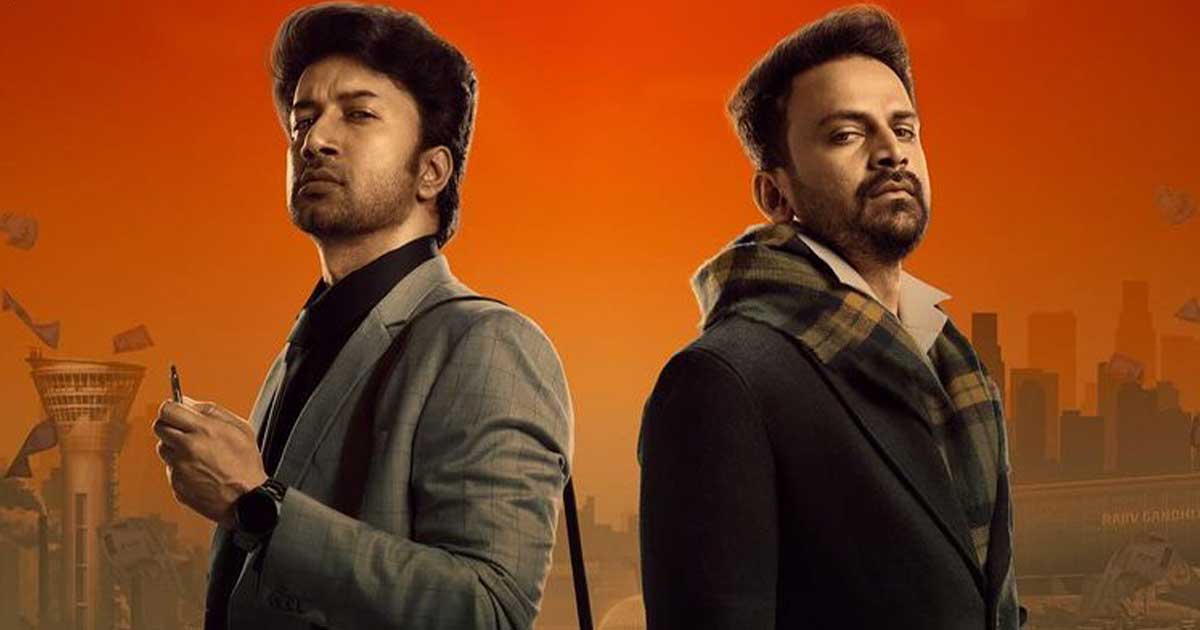
Karan Johar’s jawan unleashes the animal within – Beyond Bollywood
The ace producer turns the Dharma Productions legacy on its head by giving Bollywood its most violent film. Lakshya and Raghav Juyal leave a lasting impression.
Rating: ⭐️⭐️⭐️ ( 3 / 5)
By Mayur Lookhar
How would one react if we said that Karan Johar has possibly given India its most violent film? Most would simply call this reviewer crazy. After all, Dharma Productions has built its legacy by making family dramas and romcoms. True, but it’s also true that Johar hasn’t been afraid to experiment.
From abiding family values and respecting monogamy, Johar has also delved into complex relationships through films like Kabhi Alvida Naa Kehna [2006], Ae Dil Hai Mushkil [2016], and Gehraiyaan [2022].
Relationships are fine, but one never associates Dharma Productions with violence. Yes, there was Amitabh Bachchan’s Agneepath [1990] and later its average remake, also titled Agneepath [2012], but gore has never been part of the Dharma stable.
It seems that the times we live in have compelled Dharma to go for the ‘Kill’. After all, adharma can only be countered with Dharma.
Karan Johar and his co-producer Guneet Monga have fully supported writer-director Nikhil Nagesh Bhat in telling his Kill tale.
The story begins in Northern India, where National Security Guard Commando Amrit [Lakshya], returns home to find numerous unread messages and unanswered calls from his girlfriend Tulika [Tanya Maniktala]. A worried Tulika informs him that her father has arranged her engagement, scheduled for the next day. The following evening, Amrit arrives at the engagement ceremony, hoping to elope with Tulika, but she refuses out of fear of her father. Just as Amrit resigns himself to his fate, Tulika sends him a message that her family will be taking a train to Delhi the next eve, where they can plan their escape. Amrit and his fellow Commando Viresh [Abhishek Chauhan] also board the train. Phew, this might be the first time a man proposes marriage in a passenger train commode.
Now, what sounds like a Dharma romantic saga will soon turn into a hellish ride as Fani [Raghav Juyal] and his fellow dacoits seize control of the passenger train. In an instant, we are transported to the dreaded era of dacoity across the central Indian states and the border regions of Uttar Pradesh.
The era of such loot gave birth to desi westerns in the 70s and 80s, but they are now passé in modern India. Yet, envisioning them in a contemporary setting—on a moving train with resistance from a two-man army—is what builds intrigue around Nikhil Nagesh Bhat’s Kill [2024].
Mobile action thrillers have often piqued viewer interest, provided the execution is right. Keanu Reeves’s Speed [1994] was a game changer in this genre. More recently, Brad Pitt’s Bullet Train [2022] drew attention for its bloodied action. In the Indian context, producer B.R. Chopra’s The Burning Train [1980] is deemed an all-time classic, though it was more a survival thriller than an action film. The advent of metro services in India has led to many films featuring an action sequence or two, but never before has a Bollywood film been almost entirely set on a moving train. A long-distance passenger sleeper train adds to the challenge of filming a high-intensity action thriller in such cramped space.

Fortunately for Bhat, Dharma and Sikhya have enlisted the services of unheralded Korean action director Se-yeong Oh. Throughout this hellish ride, viewers are left with an “Oh My God” expression on their faces. Se-yeong previously choreographed action for notable Hindi films like War [2019] and Tiger 3 [2023]. Here, he is aided by India’s Parvez Shaikh. How the duo managed to pull off such deadly action, executed to near perfection in such cramped space, is totally mind-boggling.
Kill [2024] lives up to its billing as India’s most violent film, with Bhat and his producers redefining gore in Indian cinema. It’s too bloody to describe. Let’s just say, metal and human flesh here are like a knife and butter, respectively; the knife slices the butter at will, from head to toe. What’s left is a pool of blood and bodies everywhere. This one surely isn’t for the faint-hearted. Is the gore excessive and needless? Yes, but Dharma had to justify its ‘Most Violent Film’ promise.
Jeez, it looks like the Central Board of Film Certification has given Dharma the license to Kill. Is there a change in guidelines regarding censoring graphic visuals? While we hope for such consistency, we don’t want repeated bloodbaths on our screens. If you thought Ranbir Kapoor’s Animal [2013] was brutal, then Lakshya’s Kill is the new beast.
Much like Animal [2023], it’s the protagonist who unleashes the beast within. After a while, the henchmen are scared to even take on this brutal Indian soldier. As the chief antagonist Fani [Juyal] later says, “You are not no rakshak (defender), but a rakshas (demon). Well, in Kaliyuga, sometimes the hero must turn into a rakshas to slay demons like Fani.
Evil has no moral compass, but how would the Indian Armed Forces react to an Indian soldier literally mauling the dacoits? Leave aside this train; barbaric acts are never associated with a disciplined Indian Army. For the layman, though, brutal on-screen action feels cathartic. Mindless bloodshed is avoidable, but the success of films like Animal, Gangs of Wasseypur, and series like Mirzapur is testimony to its popularity among the public at large.

Phew, his name may mean elixir, but Amrit is no giver—he’s a taker of evil lives. Lakshya Lalwani earned his stripes as the titular character in the TV series Porus. The 28-year-old makes a staggering impression as an action hero in his debut film. He is nearly flawless in action and fairly competent in portraying the emotional depth of Amrit. That marriage proposal in the commode though was just plain s##t.

Raghav Juyal, a reality TV show discovery and renowned dancer-choreographer, has struggled to leave an impression as an actor. Often cast in dancer’s roles, Juyal reveals his true acting prowess in this psychotic criminal avatar. Fani respects his elders but is prone to rash decisions. He thrives on conflict, yet has never before faced the might of two Indian soldiers. Eventually, this mobile battle escalates to forty men versus one. Later, some aggrieved passengers brave to take on these evil men. In fact, it’s two women who kill the mightiest of the henchmen.
Despite his wiry frame, Juyal instills fear in both passengers and viewers alike. Such psychotic portrayals often carry a dark sense of humour. Fani shows scant regard for set plans, mocking his father Beni [Ashish Vidyarthi] with lines like, “Yeh anushasan, pratishtha, mohabbatein, sirf Amitabh Bachchan ki filmon mein accha lagta hai.”
It’s noteworthy how Karan Johar takes jabs at Dharma classics. Though purely evil, Juyal’s flawless performance unleashes the actor within him.

Seasoned actor Ashish Vidyarthi has portrayed a wide range of roles, but there’s a unique intensity to his portrayal of Beni, the leader of this bandit group. It’s not the 70s anymore, so Beni and his gang blend in like ordinary passengers. One of them disables all mobile networks in the film. Though not overtly empathetic, director Bhat isn’t hesitant to depict Beni grieving as they begin to lose close gang members one by one. Their brutal deaths at the hands of Amrit and Viresh [Abhishek Chauhan] serve as instant karma.
There’s a concern that Kill might perpetuate stereotypes about people from Uttar Pradesh and Bihar, but we encourage everyone to view this fiction in the right spirit.

We are seeing young Tanya Maniktala for the first time. The A Suitable Boy [2020] actress expresses so much with her deep eyes. After impressing in Sirf Ek Bandaa Kaafi Hai [2023], teen artist Adrija Sinha proves yet again why she is mature beyond her years. Sinha’s emotionally gripping performance as Tulika’s little sister Aahna only adds to her growing reputation. Bhat and Casting Bay are spot on with their cast.
The riveting action would have counted for nothing without the fine cinematography by Rafey Mehmood, who ensures viewers feel every punch and every bludgeoning blow.
Action is at the core of this story, but Kill and its conflict grip you emotionally.
Every generation has produced that one film that sent shockwaves. Stanley Kubrick’s A Clockwork Orange [1971] is often cited as the most violent film of its time. It wasn’t allowed to be released in India. Similarly, the first Exorcist film in 1973 saw people running out of theaters in fear. It was said to be a cursed film, with casualties both internal and external.
Karan Johar’s Kill will not kill you but it sure is the most violent film from Bollywood.
The film is set to be released in theatres on 5 July. Watch the video review below.
Publisher: Source link




